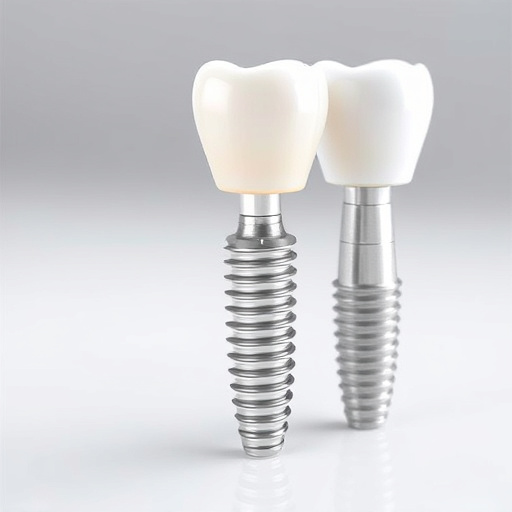Gum disease, a global oral health concern, begins as gingivitis and progresses to periodontitis, causing gum detachment and potential tooth loss. Beyond oral impacts, it's linked to systemic conditions like heart disease, diabetes, and respiratory issues due to its inflammatory nature. Timely intervention is crucial for gum disease treatment, with dentists providing routine checkups, early detection, and prevention strategies. In advanced cases, periodontists offer specialized care including deep scaling, root planing, tooth removal or implants to restore oral health.
Periodontitis, a severe form of gum disease, requires specialized care for effective management. This article delves into the distinct roles of periodontists and dentists in treating gum disease. While dentists focus on early intervention and preventive measures, periodontists specialize in advanced treatments targeting deep-rooted infections. Understanding these specialties is crucial for optimal gum disease treatment, emphasizing the importance of tailored care based on disease severity.
- Understanding Gum Disease and Its Impact
- Role of Periodontist in Advanced Treatment
- Dentist's Approach to Early Intervention and Prevention
Understanding Gum Disease and Its Impact

Gum disease is a common oral health issue affecting millions worldwide. It’s a bacterial infection that targets the gums and teeth, causing inflammation and potential tissue damage. Initially, it manifests as gingivitis, characterized by red, swollen, and bleeding gums. If left untreated, it progresses to periodontitis, leading to severe gum detachment from teeth, bone loss, and even tooth loss. This progressive nature underlines the importance of timely intervention for effective gum disease treatment.
The impact of gum disease extends beyond oral health. Research links it to various systemic conditions such as heart disease, diabetes, and respiratory issues. The inflammation caused by periodontal infections can contribute to these diseases, highlighting the need for a comprehensive approach to gum disease treatment that considers both local and general health implications.
Role of Periodontist in Advanced Treatment

In cases of advanced gum disease, a periodontist plays a pivotal role in providing specialized care. These dental specialists focus on the prevention, diagnosis, and treatment of periodontal (gum) conditions, going beyond the scope of general dentistry. When conventional dental treatments aren’t sufficient, periodontists offer advanced procedures tailored to complex gum issues. They are particularly skilled in managing severe cases that may involve deep scaling and root planing to remove plaque and tartar buildup from hard-to-reach areas.
Moreover, a periodontist might recommend wisdom tooth removal if these teeth contribute to the gum disease or create space issues, preventing proper oral hygiene. In some instances, they also perform dental implants or tooth extractions as part of the comprehensive gum disease treatment plan, ensuring optimal oral health and restoring the natural beauty of smiles affected by advanced periodontal conditions.
Dentist's Approach to Early Intervention and Prevention

Many dentists play a pivotal role in early intervention and prevention when it comes to gum disease treatment. They advocate for routine checkups and cleanings as a cornerstone of preventive dentistry, aiming to catch potential issues early before they escalate. During these visits, dentists thoroughly examine patients’ mouths for any signs of gingivitis or periodontitis, the two main stages of gum disease. Using advanced diagnostic tools, they can detect even subtle changes in gum health, enabling prompt action.
In addition, dentists often emphasize the importance of good oral hygiene practices at home, like brushing twice a day and flossing daily, as fundamental aspects of both children’s dentistry and family dentistry. They provide guidance tailored to different ages and stages of life, from teaching proper brushing techniques for young children to advising adults on advanced gum disease prevention strategies. This holistic approach helps individuals not only manage existing gum disease but also significantly reduces the risk of future complications.
When it comes to addressing gum disease, a collaborative approach between dentists and periodontists is ideal. Dentists play a crucial role in early intervention and prevention through regular check-ups and patient education. Periodontists, on the other hand, specialize in advanced treatments for severe cases, offering expertise in surgical procedures and complex therapies. For effective gum disease treatment, this partnership ensures patients receive tailored care that addresses both the immediate needs and long-term health of their oral cavity.














